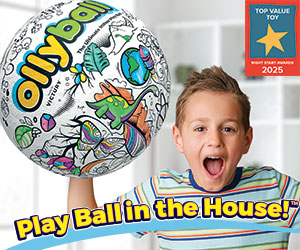Why Barbie makes a great bestie
Published
Playing with dolls can help children to appreciate other people’s thoughts and emotions, according to a new study from Cardiff University commissioned by Barbie.

It was found that playing with dolls activated parts of the brain that allow children to develop empathy and social processing skills. Researchers also investigated the importance of what kids say while they play and found children use more language about others’ thoughts and emotions when playing alone with dolls than they do when playing tablet games. Even when children play by themselves with dolls, it can help build vital social skills like empathy.
‘When children create imaginary worlds and role play with dolls, they communicate at first out loud and then internalise the message about others' thoughts, emotions and feelings,’ says researcher Dr. Sarah Gerson. ‘This can have positive long-lasting effects on children, such as fostering higher rates of social and emotional processing and building social skills like empathy to form lifelong habits.’
Empathy and social processing skills are highly valued by parents and caregivers, particularly in the last two years when many parents have voiced concerns that that their child’s social-emotional development had been affected by the pandemic. The Cardiff University research suggests that doll play can offer kids the opportunity to copy scenes and interactions from their daily lives. Children mimic what they see their parents, teachers or peers say and do, and dolls can give them an outlet to recreate what they've seen and heard to rehearse skills they can use in real-life social situations.
Visit Barbie.com/Benefits to learn more about the research and access resources.







